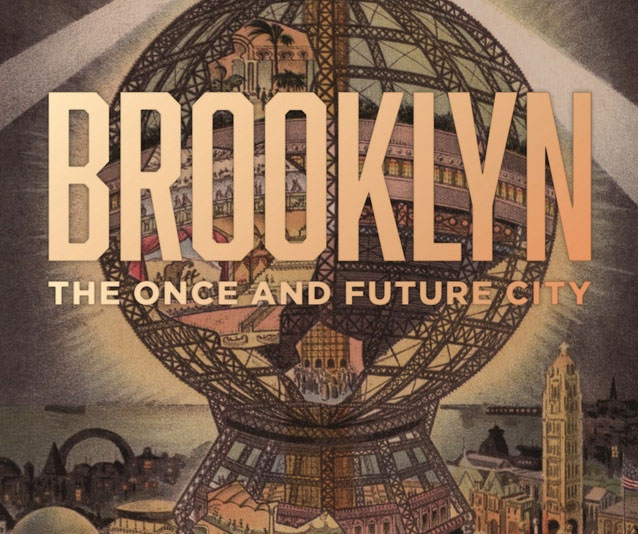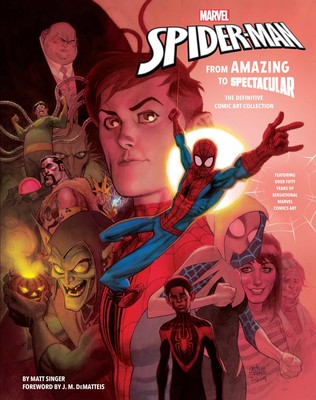
According to Brooklyn Eagle, Maria Semple, author of national bestseller “Where’d You Go, Bernadette,” has recently released her book in paperback (Back Bay Books), and is slated to speak in Brooklyn on May 9 as part of Community Bookstore’s and Congregation Beth Elohim’s Brooklyn By The Book series. While Semple’s background primarily consists of TV writing – she’s written for “Mad About You,” “Ellen,” and “Arrested Development – she has authored one previous novel, “This One is Mine,” and her latest book is brilliantly crafted.
“Where’d You Go Bernadette” satirically portrays modern parenting, focusing on a Seattle-based family transplanted from Los Angeles. Semple creates enormously entertaining characters – most notably Bee, an eccentric and remarkably bright teenager; Bernadette Fox, Bee’s agoraphobic mother who once won a MacArthur Genius grant for her architectural work; and Elgin Branch, Bernadette’s husband, who is devoted to his family despite his intense commitment to his high-ranking job at Microsoft.
Bernadette – who has a strong distaste for Bee’s classmates’ parents (whom she calls “gnats”) – is so put off by other humans that she hires a virtual assistant, Manjula, to manage all of her errands from India. When the family is planning a vacation in Antarctica, Bernadette even has Manjula coordinate all arrangements. After a series of dramatic events, all of which Semple enlivens by gradually unfolding a story through comical emails and letters, Bernadette mysteriously disappears. Though Bee narrates the book – which, at the outset, mentions Bernadette’s vanishing – the perspective is constantly shifting; Semple tells the story almost entirely through written correspondence between various characters. In a determined effort to find her mother, Bee gets her hands on a slew of documents that clue her in on both her mother’s and father’s histories and actions that led to Bernadette’s disappearance.
It is no surprise that this uproarious story is being adapted for the screen. Annapurna Pictures and Color Force have secured the film rights, and Semple will serve as executive producer. In anticipation of her upcoming Brooklyn appearance, Brooklyn Eagle interviewed the author, who speaks about the inception of her characters and reveals what she’s working on now.
Why did you decide to narrate the story from Bee’s perspective? Was this something you intended to do all along?
Once I decided to make the book an epistolary novel, I was really excited. I was writing all these documents and cracking myself up, and it was all just taking off. But then, maybe about a month into it, it started to bug me. I started to think about who was putting these letters together. Was it me, Maria Semple? ..But isn’t that kind of jumping from reality into fiction?
I realized I needed someone who would be putting the letters together; I needed an archivist. At the time, Bernadette had a daughter, but the daughter had nothing to do. And the more I wrote the book, the more it felt like this hole in the book. I hadn’t figured the daughter out. I guess I assumed she would become important, but she never really did. Then I thought, ‘Oh my gosh, what if it’s the daughter who archived it?’ And then, of course, this beautiful voice of Bee was born, and she was my favorite voice in the book. It’s kind of embarrassing to think that I didn’t have that idea from the beginning.
The characters you developed in your book are extremely animated and entertaining. I know you have a background in TV writing; do you feel like that helped you to bring these literary characters to life?
Yes, it definitely helped me. My background in TV made me always want to write single-minded characters; I’m not going to write a character if they’re not very active and single-minded. At this point, as a writer, that’s second nature to me. I like single-minded characters for stories because they make stuff happen. You’re in good, fertile ground if you have a bunch of single-minded people in the same story.
I think the reason why these characters are so animated is because I always try to find a side of myself that, frankly, is kind of shameful, and I use that as the comic handle of the character — just a part of myself that I think is kind of awful.
But also so relatable…
Exactly, because it’s something that I have a lot of energy about. If it’s a shameful part of me — this side of me that thinks that I’m better than all the other mothers at school — that’s a horrible side of me. So I always try to identify these little dark, shameful aspects of my personality, and that’s where I kind of jump off from. Every character I see in terms of that, and it might not even be that clear to the reader, but it’s my way into the character. And then I construct a whole world around that, but I want to make sure that at the core there’s a kind of an energy or an emotional danger to writing the character, where I feel afraid of being exposed.
Well, I loved all the characters, and even the parts that probably came from shameful parts of yourself made the characters very real and relatable. You still find yourself routing for them, so I think what you’re doing is very effective.
So many people relate to so many of the characters, which I really have to think is because I did put myself out there in a way, and I did take that risk. I think people identify with characters if you do that.
How does writing a literary text compare with writing TV scripts? Do you find one or the other to be more challenging?
At this point, I would definitely find TV writing to be more challenging, because I’ve really fallen in love with the freedom of fiction. You can do anything. You’re not hamstrung by the budget or the number of sets you have. There are just all these constraints along the way [in TV writing]. But now that I’ve experienced this freedom of writing fiction, I’ll never go back.
As a TV writer, it’s never you that’s out there going out on the limb… It’s the show, and it’s so complicated. There are so many people involved, and it’s so collaborative. If someone likes the show, you don’t even necessarily think they like what you did [as the writer], or if someone doesn’t like show, I never really take it personally — it would be impossible to. But now, as a novelist, I feel so out there and so exposed, but in the most thrilling way. That also is kind of a danger I’ve become addicted to as a writer.
Can you talk a bit about your involvement with the film adaptation?
I am a producer of the movie, but I’m not writing the screenplay. I feel like I have my book, and the book is the book. I’m very proud of it and I’m pretty restless creatively. I didn’t want to be spending the next two years writing the script of the book; that would just be perverse to me. Time is really a limited commodity in my life, and I feel like that would be kind of going backwards in many different ways. I feel very lucky that I’m able to work on my next project and just read the script and give some notes on it.
My boyfriend and I are writing a play now. My boyfriend’s also a TV writer. Who knows if it’ll come together — I hope it does. We’ve never worked together and we haven’t killed each other, so so far that’s a good first step, and the play so far is really funny. We’re about half way through, but you never know if these things will come together.
* * *
The May 9 Brooklyn By The Book event will begin at 7:30 p.m. To reserve tickets, visit https://congregationbethelohim.org/civicrm/event/info?id=1713&reset=1. Congregation Beth Elohim is located at 274 Garfield Place in Park Slope.



